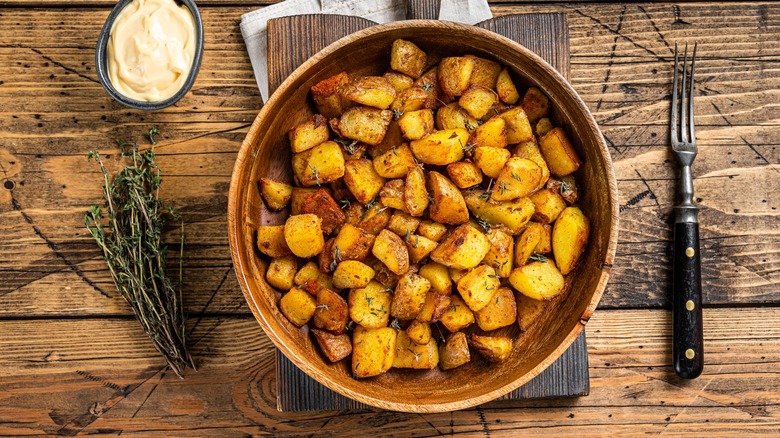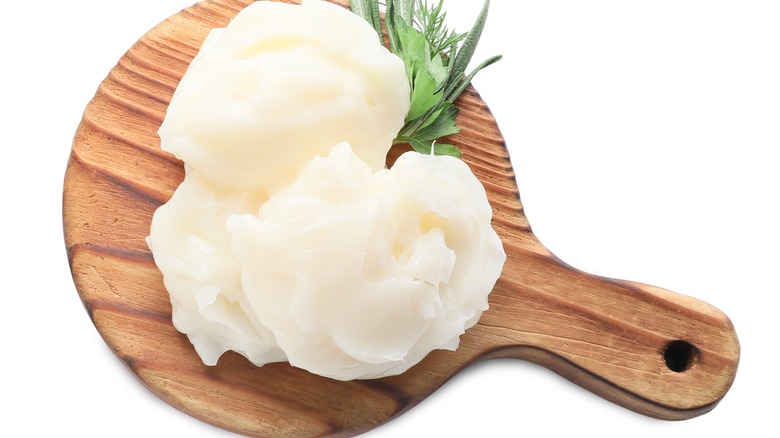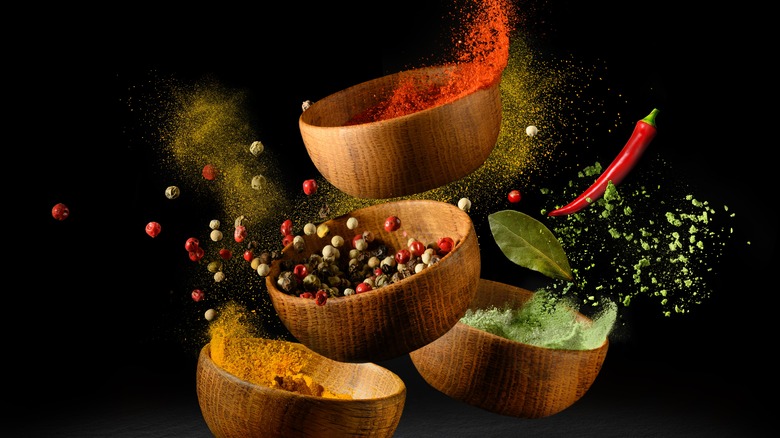For Professional-Quality Roasted Potatoes, You Need Beef Tallow
Sorry vegans and vegetarians, but some of the best, restaurant-level roasted potatoes require animal fat for that optimum, melt-in-your-mouth taste. From bacon grease and lard to goose fat, the most scrumptious roast potatoes take advantage of the deeply rich flavor found in meat-based fats. And if you want truly professional-quality potatoes? Well then, it's time to break out the beef tallow!
Beef tallow has a milder taste than other fats, but it still has a savoriness and fragrance that's hard to top. As such, it will impart your potatoes — and honestly, any other vegetables you want to roast in it — with a unique profile that will leave you craving more long after the last bite. Unlike vegetable oils, which have a much more neutral flavor profile, beef tallow is sure to rouse your tastebuds with its delicious and almost buttery meatiness without being overpowering. Although it did fall out of favor due to assumptions that it was unhealthy compared to vegetable oils, a quick look at its vitamin and HDL cholesterol content suggests that it might actually be good for you.
What is beef tallow anyway?
If you're not familiar with beef tallow, think of it as similar to lard — it has a lot of the same uses but it is made from cow fat instead of pig. Like lard, it forms a solid at room temperature and is usually white (but it can also be yellow). Unlike lard, which is clear when it melts, tallow takes on a more golden hue. Whereas beef tallow used to be a very affordable fat, it has become more expensive over the years. Fortunately, it is easy to make your own from suet or beef fat scraps. It's simply a matter of melting the fat on low heat and straining out any crispy bits that are left at the end.
Another benefit of beef tallow is that it doesn't reach its smoke point until at least 420 degrees Fahrenheit. That means you can get your potatoes nice and crispy without having to worry about burning the fat or losing any of the nutritional value. If you want to take your tallow to the next level, you can follow Chef Curtis Stone's lead and seek out dry-aged beef fat, which will yield a deeper, more pronounced umami flavor.
Seasoning potatoes roasted in beef tallow
While the beef fat will add a mouthwatering, savory flavor to the potatoes, you'll still want to season them. Salt is a given, of course, though you may want to add pepper, whole garlic cloves, and even chiles before sliding them into the oven. But since you'll want to use high heat to get them nice and crispy, it's best to save the herbs and spices until after they're done cooking. After all, you don't want the seasonings to burn.
Once they're out of the oven, feel free to toss the potatoes in rosemary, oregano, parsley, thyme, or whatever herb (or combination of herbs) strikes your fancy. Some excellent flavoring options include Cajun spice blends, smoked paprika, and Greek seasoning mixes. No doubt you will be inspired simply by the delightful smell coming from your oven so seasoning appropriately shouldn't be an issue. Instead of draining the potatoes on paper towels, you may want to transfer them straight to a bowl and toss them with seasoning while they still have a little bit of the fat on them as this will help the herbs and spices stick. But however you dress them up, these will be some of the best roasted potatoes you've ever had thanks to the incredible beefiness of the tallow.


